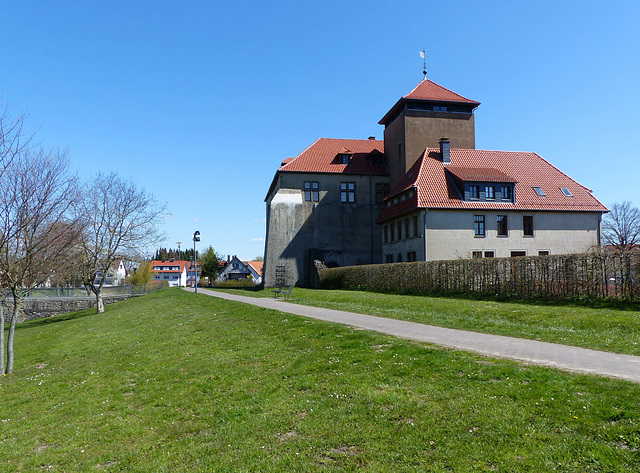Horn - Burg
Horn - Mittelstrasse
Horn - Salon Schöne
Horn - Mittelstrasse
Horn - Kotzenbergscher Hof
Horn - Amtsgericht
Horn - Nordstrasse
Horn - Rathaus
Horn - Evangelical Reformed Church
Horn - Evangelical Reformed Church
Horn - Evangelical Reformed Church
Horn - Evangelical Reformed Church
Soest - Patrokli Cathedral
Soest - Patrokli Cathedral
Soest - Patrokli Cathedral
Soest - Patrokli Cathedral
Soest - Patrokli Cathedral
Soest - Patrokli Cathedral
Soest - Patrokli Cathedral
Aachen - St. Michael
Aachen - Cathedral
Aachen - Hof
Aachen - Hof
Lügde - St. Marien
Lügde - St. Marien
Lügde - St. Marien
Lügde - St. Marien
Lügde - Arminius Apotheke
Lügde - St. Kilian
Lügde - St. Kilian
Lügde - St. Kilian
Lügde - St. Kilian
Lügde - St. Kilian
Lügde - St. Kilian
Lügde - St. Kilian
Lügde - St. Kilian
Lügde - St. Kilian
Lügde - St. Kilian
Lügde - St. Kilian
Lügde - St. Kilian
Lügde - St. Kilian
Lügde - St. Kilian
Cologne - Ubierring
Cologne - Kartäuserkirche
Cologne - Kartäuserkirche
Location
Keywords
Authorizations, license
-
Visible by: Everyone -
All rights reserved
-
80 visits
Horn - Burg


Horn (since 1970 part of Horn-Bad Meinberg) was founded by Bernhard III, Edler Herr zur Lippe, after 1230. It was first mentioned in 1248. Horn was located on the old road, that run from Cologne to Hamlin - and today is known as "Bundesstrasse 1" (B1).
Horn got strongly fortified with a surrounding wall and a moat. The castle, was part of this fortification, though it was later used as a kind of retirement home by several widows of the House of Lippe.
Armed conflicts over the city took place in particular during the Soest feud (1444–1449) and during the Thirty Years' War (1618–1648). In 1864, large parts of the city were destroyed in a fire, about 60 houses burnt down including the town hall.
Horn is the home of the "Schlachtschwertierer" (battle swordsmen). They form a so-called "Rott" as part of the local Schuetzenverein.
According to a legend, Wilhelm von Braunschweig and Bernhard zur Lippe were involved in a feud around 1485. In the course of the feud, Bernhard was taken prisoner and brought to the castle in Calenberg. The demanded ransom of 200,000 guilders was extremely high. The Horn citizens decided to raid the castle and free Bernhard. The men climbed the castle, smashed the iron door of the dungeon and Count Bernhard was freed. They took home the castle bell, swords, armour and chain mail as their booty. Count Bernhard guaranteed the citizens numerous freedoms. The bell in the town hall tower, as well as the two-handed swords and mail shirts, are now owned by the Schützengesellschaft and are said to date from the time of Count Bernhard's liberation (what some scholars doubt).
Horn got strongly fortified with a surrounding wall and a moat. The castle, was part of this fortification, though it was later used as a kind of retirement home by several widows of the House of Lippe.
Armed conflicts over the city took place in particular during the Soest feud (1444–1449) and during the Thirty Years' War (1618–1648). In 1864, large parts of the city were destroyed in a fire, about 60 houses burnt down including the town hall.
Horn is the home of the "Schlachtschwertierer" (battle swordsmen). They form a so-called "Rott" as part of the local Schuetzenverein.
According to a legend, Wilhelm von Braunschweig and Bernhard zur Lippe were involved in a feud around 1485. In the course of the feud, Bernhard was taken prisoner and brought to the castle in Calenberg. The demanded ransom of 200,000 guilders was extremely high. The Horn citizens decided to raid the castle and free Bernhard. The men climbed the castle, smashed the iron door of the dungeon and Count Bernhard was freed. They took home the castle bell, swords, armour and chain mail as their booty. Count Bernhard guaranteed the citizens numerous freedoms. The bell in the town hall tower, as well as the two-handed swords and mail shirts, are now owned by the Schützengesellschaft and are said to date from the time of Count Bernhard's liberation (what some scholars doubt).
Alexander Prolygin has particularly liked this photo
- Keyboard shortcuts:
Jump to top
RSS feed- Latest comments - Subscribe to the comment feeds of this photo
- ipernity © 2007-2024
- Help & Contact
|
Club news
|
About ipernity
|
History |
ipernity Club & Prices |
Guide of good conduct
Donate | Group guidelines | Privacy policy | Terms of use | Statutes | In memoria -
Facebook
Twitter

Sign-in to write a comment.